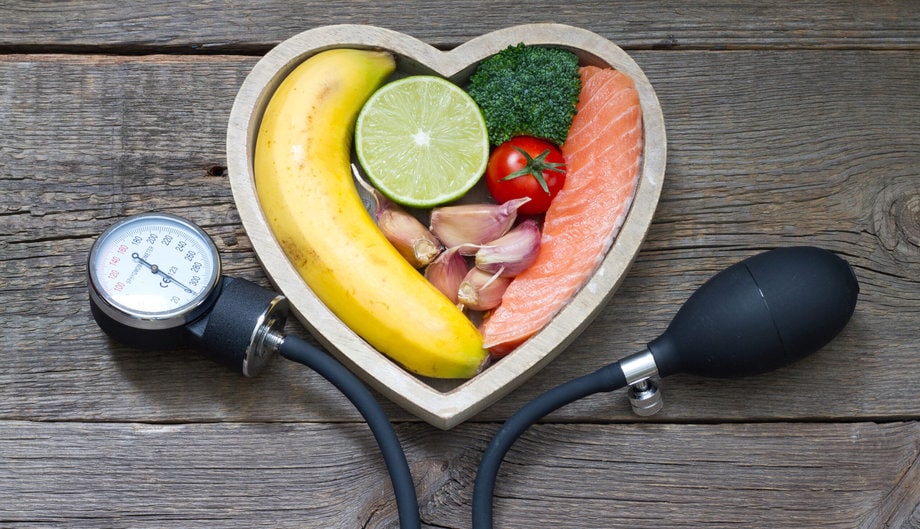What Are The Best Nutritional Supplements For Hypertension Support?

Hypertension, also known as high blood pressure, is a prevalent chronic condition that affects a significant portion of the global population. It is a major risk factor for various cardiovascular diseases and can lead to severe health complications if left unmanaged. While lifestyle modifications and pharmacological interventions are the primary approaches to managing hypertension, nutritional supplements have gained attention as potential adjunctive therapies.
This article aims to explore the best nutritional supplements for hypertension support, based on current scientific evidence. The supplements under consideration include omega-3 fatty acids, magnesium, potassium, coenzyme Q10 (CoQ10), garlic, hawthorn, beetroot, and vitamin D. By evaluating the efficacy and safety profiles of these supplements, individuals with hypertension can make informed decisions regarding their use as complementary interventions.
This article will provide an objective and impersonal analysis of the available scientific literature to assist readers in understanding the potential benefits and limitations of nutritional supplements in the context of hypertension management.
Key Takeaways
- Beetroot juice and supplements are effective in reducing blood pressure levels due to their high nitrate content.
- Vitamin D supplementation is beneficial for hypertension support as it is associated with blood pressure regulation and low levels are linked to higher blood pressure.
- Natural sources of vitamin D, such as sunlight exposure and fatty fish, can help regulate blood pressure levels and improve endothelial function.
- Incorporating fortified dairy products or vitamin D supplementation is recommended for obtaining natural sources of vitamin D for hypertension support.
Omega-3 Fatty Acids
Omega-3 fatty acids have been extensively studied for their potential role in hypertension management, showcasing promising results in reducing blood pressure levels and improving cardiovascular health.
These essential fatty acids are predominantly found in fatty fish, such as salmon, mackerel, and sardines.
Omega-3 fatty acids have been shown to have several mechanisms of action that contribute to their antihypertensive effects. They can reduce inflammation, improve endothelial function, and enhance vasodilation, all of which can help lower blood pressure.
Additionally, omega-3 fatty acids have been found to possess antithrombotic properties, which can prevent the formation of blood clots and reduce the risk of cardiovascular events.
Some studies have also suggested that consuming omega-3 fatty acids in combination with garlic, which has been shown to have blood pressure-lowering effects, may provide additional benefits in managing hypertension.
Magnesium
Another essential mineral to consider for managing hypertension is magnesium.
Magnesium plays a crucial role in maintaining cardiovascular health and regulating blood pressure.
Studies have shown that magnesium deficiency is associated with an increased risk of developing hypertension.
It is believed that magnesium helps relax the blood vessels, improving blood flow and reducing blood pressure.
Magnesium also helps to balance sodium and potassium levels, which are important for maintaining healthy blood pressure.
Increasing magnesium intake through diet or supplements has been shown to have a positive effect on blood pressure levels.
However, it is important to note that while magnesium supplements may be beneficial for some individuals with hypertension, it is always best to consult with a healthcare professional before starting any new supplement regimen.
Potassium
Potassium is a mineral that plays a significant role in maintaining healthy blood pressure levels and cardiovascular function. It is known to have various benefits for individuals with hypertension. Adequate potassium intake can help lower blood pressure and reduce the risk of developing hypertension.
The recommended daily intake of potassium for adults is 2,600-3,400 mg, depending on age and sex.
Here are five benefits of potassium for hypertension support:
- Potassium helps relax blood vessel walls, promoting better blood flow and reducing strain on the heart.
- It counteracts the effects of sodium, which can raise blood pressure.
- Potassium aids in the excretion of excess sodium through urine, further assisting in blood pressure regulation.
- It supports the functioning of the kidneys, which play a vital role in maintaining blood pressure.
- Potassium also helps prevent the formation of blood clots, reducing the risk of cardiovascular events.
Incorporating potassium-rich foods like bananas, oranges, avocados, and leafy greens can contribute to a balanced diet and support hypertension management.
Coenzyme Q10 (CoQ10)
Coenzyme Q10 (CoQ10) has been studied for its potential benefits in managing hypertension. Research suggests that CoQ10 supplementation may help lower blood pressure levels in individuals with hypertension.
Additionally, CoQ10 can be obtained from natural sources such as organ meats, fatty fish, and whole grains.
Benefits of CoQ10 for Hypertension
CoQ10 has been shown to have potential benefits for individuals with hypertension, as it may help to lower blood pressure and improve overall cardiovascular health. Several studies have indicated that CoQ10 supplementation can lead to a significant reduction in systolic and diastolic blood pressure levels.
Moreover, CoQ10 has been found to enhance the function of endothelial cells, which play a crucial role in regulating blood pressure. This supplement also possesses antioxidant properties, which can protect against oxidative stress and prevent damage to blood vessels.
The recommended daily dosage of CoQ10 for hypertension support ranges from 100 to 200 mg. However, it is important to consult with a healthcare professional before starting any new supplementation regimen, as individual needs may vary.
Overall, CoQ10 supplementation may be a beneficial addition to the treatment plan for individuals with hypertension.
Natural Sources of CoQ10
One potential way to increase your intake of CoQ10 is by consuming foods that are naturally rich in this compound. CoQ10 is found in high amounts in organ meats such as heart, liver, and kidney. Additionally, it can be found in smaller quantities in other meats such as beef, pork, and chicken.
Fatty fish like salmon, sardines, and mackerel are also good sources of CoQ10. Vegetarian sources include soybean oil, peanuts, and sesame seeds. Incorporating these foods into your diet may help to boost your CoQ10 levels naturally.
It is important to note that while natural sources of CoQ10 can contribute to overall intake, supplementation may be necessary to achieve therapeutic levels for specific conditions such as hypertension. Always consult with a healthcare professional before making any dietary changes or starting any new supplements.
Garlic
Garlic has been widely studied for its potential to support hypertension management due to its antioxidant and anti-inflammatory properties. Studies have shown that garlic can help lower blood pressure and reduce the risk of cardiovascular diseases.
Here are three benefits of garlic for hypertension support:
- Blood pressure reduction: Garlic supplements have been found to significantly decrease systolic and diastolic blood pressure levels. This is attributed to the presence of compounds like allicin, which promote the relaxation of blood vessels and improve blood flow.
- Anti-inflammatory effects: Garlic contains sulfur compounds that possess anti-inflammatory properties. These compounds help reduce inflammation in the blood vessels, which can contribute to the development of hypertension.
- Antioxidant activity: Garlic is rich in antioxidants that help protect the body against oxidative stress. By neutralizing free radicals, garlic helps prevent damage to blood vessels and reduces the risk of hypertension-related complications.
In addition to garlic, hawthorn supplements have also been studied for their potential benefits in managing hypertension.
Hawthorn
Moving on from garlic, another nutritional supplement that has been studied for its potential benefits for hypertension support is hawthorn.
Hawthorn is a plant that has been used in traditional medicine for centuries. It is believed to have various medicinal properties, particularly for heart health. Research suggests that hawthorn may help lower blood pressure by dilating blood vessels and improving blood flow. Additionally, it may have antioxidant and anti-inflammatory effects that can contribute to overall cardiovascular health.
However, it is important to note that hawthorn supplementation may also have some side effects. These may include dizziness, nausea, and stomach upset. It is advisable to consult with a healthcare professional before starting hawthorn supplementation, especially if you are taking any medications or have any underlying health conditions.
Beetroot
This paragraph discusses the nitrate content in beetroot and the ways to consume beetroot for hypertension.
Beetroot is known for its high nitrate content, which has been shown to lower blood pressure by dilating blood vessels.
To consume beetroot for hypertension support, it can be consumed raw, juiced, or cooked and incorporated into various dishes.
The Nitrate Content in Beetroot
The nitrate content in beetroot can be visualized as a potential nutritional supplement for supporting hypertension. Research has shown that beetroot juice and beetroot supplements have been effective in reducing blood pressure levels in individuals with hypertension.
The high nitrate content in beetroot is converted into nitric oxide in the body, which helps to relax and widen blood vessels, leading to improved blood flow and lower blood pressure. This mechanism of action makes beetroot a promising natural option for managing hypertension.
Moreover, the bioavailability of nitrate from beetroot is enhanced when consumed in a liquid form, such as beetroot juice. In addition, beetroot supplements provide a convenient alternative for individuals who may not prefer the taste or availability of beetroot juice.
Ways to Consume Beetroot for Hypertension
One effective way to incorporate beetroot into one’s diet for managing high blood pressure is by consuming beetroot juice or supplements, as they provide a concentrated and convenient source of nitrate. Beetroot juice is a popular choice due to its high nitrate content, which is converted into nitric oxide in the body. Nitric oxide helps to relax and widen blood vessels, reducing blood pressure.
To prepare beetroot juice, one can simply blend or juice fresh beetroot. Adding a small amount of lemon juice or ginger can enhance the flavor. Alternatively, beetroot supplements are available in capsule or powder form, providing a convenient option for those who may not enjoy the taste of beetroot.
In addition to its benefits for hypertension, beetroot is also rich in antioxidants and nutrients, making it a valuable addition to one’s overall health regimen.
Vitamin D
This paragraph will discuss the link between Vitamin D and blood pressure as well as natural sources of Vitamin D.
Numerous studies have suggested a potential association between Vitamin D levels and blood pressure regulation. Some research indicates that low levels of Vitamin D may be linked to higher blood pressure levels, although the exact mechanisms are not fully understood.
In terms of natural sources, Vitamin D can be obtained through exposure to sunlight, as well as through certain foods such as fatty fish, fortified dairy products, and egg yolks.
The Link Between Vitamin D and Blood Pressure
Vitamin D has been shown to have a significant association with blood pressure levels. Numerous studies have explored the link between vitamin D and cardiovascular health, with particular emphasis on its role in blood pressure regulation.
Firstly, vitamin D supplementation has been found to have a modest but consistent effect on lowering blood pressure in individuals with hypertension.
Secondly, it has been observed that vitamin D deficiency is prevalent in people with elevated blood pressure, suggesting a potential causal relationship.
Lastly, vitamin D is involved in various mechanisms that contribute to blood pressure control, such as regulating the renin-angiotensin-aldosterone system and reducing inflammation.
Overall, the evidence supports the notion that vitamin D supplementation may play a role in blood pressure management, making it a potential nutritional supplement for hypertension support.
Natural Sources of Vitamin D
Previous research has highlighted the potential link between vitamin D and blood pressure. Now, let’s turn our attention to the natural sources of this essential nutrient. Obtaining vitamin D from natural sources can be advantageous, as it provides additional health benefits beyond just supporting hypertension.
Here is a table summarizing some natural sources of vitamin D:
| Food Sources | Sunlight Exposure | Supplementation |
|---|---|---|
| Fatty Fish | Yes | No |
| Fortified Dairy Products | No | Yes |
| Egg Yolks | No | No |
| Mushrooms | No | No |
Vitamin D obtained from natural sources can offer a range of benefits for hypertension. It may help regulate blood pressure levels, improve endothelial function, and reduce inflammation. Incorporating these natural sources into a balanced diet can be a valuable addition to hypertension management strategies.
Frequently Asked Questions
Can nutritional supplements alone cure hypertension?
Lifestyle changes, including dietary modifications and stress management, can effectively manage hypertension without medication. However, the significance of nutritional supplements alone in curing hypertension remains unclear and requires further research.
What is the recommended daily dosage of omega-3 fatty acids for hypertension support?
The recommended daily intake of omega-3 fatty acids for hypertension support is typically around 1,000-2,000 mg. Omega-3 fatty acids have been shown to have numerous benefits for hypertension, including reducing blood pressure and improving cardiovascular health.
Are there any potential side effects of taking magnesium supplements for hypertension?
Potential risks and precautions associated with taking magnesium supplements for hypertension include diarrhea, stomach cramps, and nausea. It is important to consult with a healthcare professional before starting any new supplement regimen.
Can beetroot supplements interact with any medications commonly prescribed for hypertension?
Beetroot supplements may interact with blood pressure medications commonly prescribed for hypertension. This interaction may increase the risk of hypotension or low blood pressure, which can lead to dizziness, fainting, or other adverse effects in hypertension patients.
Is it safe to take high doses of vitamin D supplements for hypertension support?
The connection between high doses of vitamin D and hypertension is not well-established. While vitamin D has benefits for overall cardiovascular health, its role in hypertension support requires further research.









